Some of the newspaper and journal articles I found during my research are a bit too long or wordy to include in the main body of my essay. So I have made them into separate drill-down pages, and introduced some punctuation in my transcript so you don't get too breathless. Any comments are in [blue italics]. Please click the link on the left to get back to the essay, or to the Contents page.
The London newspapers of the 18thC were more like local newspapers in the way they reported the smallest incident, which makes it easy now to find the names of people who would otherwise have passed unnoticed. Here are some of the death notices I found whilst researching cowkeepers. Gory or painful deaths were popular and widely copied between newspapers.
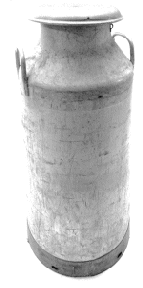
London Journal Saturday April 7th 1722
"On Monday last a Cow-keeper, living at Stepney, fell under his Cart as he was driving it full loaded, and the Wheel passing over his Leg, broke it in so terrible a manner, that he died the next Day."
Post Boy Thursday September 6th 1722
"On Wednesday Mr Harding, an eminent Cow-keeper near Hyde-Park Corner, being in the Custody of Mr Chase an Officer of the Sheriff of Middlesex, in Fox-Court, Gray’s-Inn-Lane; and being that day to be removed to the King’s-Bench-Prison, by vertue of an Habeas Corpus, cut his Throat with a Razor with which he instantly died; The Coroner’s Inquest have brought it in Lunacy." ['Non Compos Mentis' said the Daily Journal]
Weekly Journal Saturday August 10th 1723
"On Tuesday Night died Mr Ratcliff, the noted Cow-keeper at Mount-Mill."
Daily Journal Monday July 28th 1729 - copied in several other London papers and the Gloucester Journal.
"On Friday Night last John Raven, a Cow-Keeper at Hampstead, about 20 Years of Age, being light-headed in a Fever, stole out of his Bed, and got out of the House from his Mother, who sat up by him, (but happen’d to drop asleep) and went over two or three Fields without his Cloaths, to a deep Well, where ‘tis supposed he intended to drink, and tumbling in, was drowne’d, and his Body was the next Day found in the said Well."
Daily Journal Friday January 17th 1735
"On Wednesday last, John Eades, a Cow-keeper in Tothil Fields, who had been missing about six Weeks was taken up at Westminster Bridge drown’d, and notwithstanding he had lain so long in the Water, his Money, which was considerable, was found in his Pocket."
Mr Eades could be the same man who advertised for the return of his missing daughter in 1728 - see Newspaper cuttings – I wonder if she ever returned? These two reports on their own illuminate a whole family, which is why I find this all so fascinating. Within days, the Grub Street Journal had picked up the reports of Mr Eades’ death from three other newspapers and grouped them into this announcement:

London Evening Post Tuesday February 18th 1735
"Tuesday Mr Salisbury, a noted and wealthy Cow-keeper in Cabbage-lane, Westminster, dropt down in an Apoplectick Fit at his own House, and dy’d immediately: He was thought to be one of the most eminent and skilful Men in England in his Way of Business."
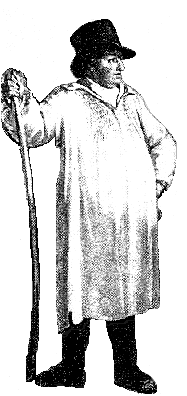
London Evening Post Thursday 16th June 1737
"Yesterday Morning Mr Huddell, a noted and wealthy Cow-keeper and Brick-maker, dropt down dead at his Door in Oxford Road."
Country Journal London, Saturday 8th October 1737
"Dead: Mr Sibborn, a very wealthy Farmer and Cow-keeper near Islington."
London Daily Post Monday 20th October 1740
"On Saturday Morning died Mr Francis Woodfield, an eminent Cow-keeper in London-field, Hackney."
Daily Gazetteer Wednesday 18th January 1744
"On Monday died, at his House in Tothill-Fields, Mr Ferryman, a great Cow-keeper, and one of the Persons concerned in the Stone-work for the new Bridge at Westminster."
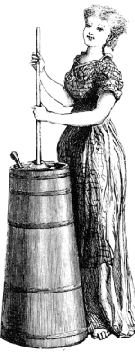
General Evening Post Thursday March 3rd 1743 [copied by four other newspapers]
"Yesterday a frightful and most shocking Accident happen’d to Mrs Pankard, Wife to Mr Pankard, a wealthy Cow-keeper at Newington in Surrey : A Cow of their having cast her Calf on Thursday Night, she went Yesterday Morning to see it and give the Cow some Hay ; on stroaking the Calf the Cow gored her in the Belly in such a terrible Manner, that her Bowels came out and she died on the Spot."
Penny London Morning Advertiser Wednesday 6th June 1744
"On Tuesday last as Mr Sturgis, a noted Cow-keeper at Deptford, was coming out of the Fields to his House, he was suddenly taken ill, dropt down on the Grass, and died immediately : He was a very honest Man, and respected by all that knew him."
General Advertiser Saturday 21st May 1748:
"Yesterday died, reputed very rich, Mr Abraham Banks a Cow-keeper, at his House in Castle-street, Shoreditch." [The Jacobite’s Journal of 28th May added: "We are assured that Mr Thomas Banks, the Hog-keeper, remains in perfect Health"]

London Evening Post Tuesday 16th January 1750
"On Monday last died at his House in Rochester-Row, Tothill-fields, Westminster, Mr Unthank, a wealthy Cow-keeper."
General Advertiser Thursday 13th December 1750
"On Tuesday Night died, at his House in Masham-street, Westminster, aged 72, Mr Harvey, a wealthy Farmer and Cow-keeper."
Public Advertiser Monday 28th May 1753
"Friday died Mrs Elizabeth Pullen, aged 72, a wealthy Cow-keeper at Islington."
London Evening Post Saturday 29th December 1753
"Last Week while a Woman was milking a Cow in a Cow-Keeper’s Yard at Kingsland, the Bull came into the Yard, and running at her, gored her in so terrible a Manner that she died the next Morning."
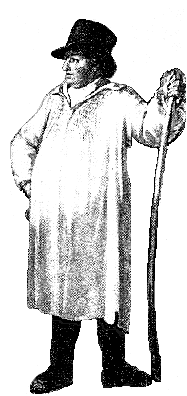
London Chronicle Thursday 18th August 1763
"Tuesday last died, aged 78, Mr Woodfield, an eminent farmer and cow-keeper at Clapton in Middlesex."
London Evening Post Thursday 30th August 1764
"Thursday, about six in the evening, as a servant of Mr Davis, cow-keeper and brick-carter, was coming down the New-road by Battle-bridge turnpike from Mr Grey’s brick-field, riding on the copse of his cart, the horses took fright, and galloping furiously along, threw him off, and the wheel went over his head and killed him on the spot; which accident, among many others of the like nature, ‘tis to be hoped will serve as a warning to carters in general not to practise the unlawful and dangerous method of riding on their carriages."
St James’s Chronicle London, Saturday 7th January 1769
"DIED: Friday, at his Son’s House at Paddington, Mr Daniel Mowbray, a wealthy Farmer and Cow-keeper."
General Evening Post Saturday 10th February 1770
"DIED: In Gray’s inn-lane, Mr Harrison, allowed to be the greatest cow-keeper in England."
Public Advertiser Thursday 14th October 1773
"On Sunday last died at Blackheath, Mrs Sarah Maude, aged 76 Years, a wealthy Cow-keeper of that Place."
General Evening Post Saturday 6th August 1774
"DIED: Saturday, at South Lambeth, in the 74th year of her age, Mrs Martha Robinson, cow-keeper, but had retired about five years since on getting a £5000 prize in the lottery of 1769."
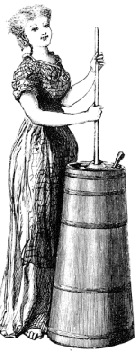
General Evening Post Tuesday 28th February 1775
"Yesterday morning, in St George’s fields (while at breakfast) in a fit of apoplexy, Mr Clarke, cow-keeper and Borough-scavenger." [widely reported]
London Evening Post Tuesday 10th October 1775
"DIED: Tuesday, Mr Henry Pullen, an eminent cow-keeper at Islington"
Public Advertiser Monday 29th December 1777
"Thursday died at Holloway, very rich, Mr Benjamin Hickman, a capital Farmer and Cow Keeper, and formerly a Contractor for supplying the Government with Cattle."
General Evening Post Tuesday 26th April 1791
"A few days ago, a Gentlewoman of fortune, at Bethnal-Green, put an end to her life, by hanging herself in her bed-chamber: she was the widow of a capital farmer, gardener, cow-keeper, brick-maker, one of the city scavengers, builder, and owner of a street near Moorfields &c. who died very lately, possessed of a large fortune. "[checked all ‘died’ hits in London Chronicle back to 1 Jan – can’t find him]
London Evening Post Saturday 22nd June 1776 (and others; widely reported with different levels of detail; the following is an amalgam) - one of the more horrific reports concerning a rabies victim - salt-water was thought to be a cure:
"Saturday se’nnight a boy about 14 years old, servant to a cow-keeper near Tottenham, died raving mad, occasioned by his being bit by a mad dog about a month before. The friends of this unfortunate youth were incapable, through their extreme poverty, of sending him to bathe in the sea and the officers of the parish where he resided, and who ought to have supplied the expence of that infallible remedy, absolutely refused to take any care of him. He languished in the utmost agony from Wednesday last till his death, and during all the time was perfectly in his senses. He begged to be dispatched by any other means than smothering; shoot me! run a sword through me! but do not smother me! (said this poor boy) that will be tedious dying. At length the parish officers conveyed him to an apothecary, who gave him a powerful potion that instantly flew through the whole frame of his body, and in two minutes deprived him of life." [The poison was probably strychnine; death is caused by asphyxiation, ironically what the boy feared most, poor child.]
General Advertiser Monday 27th February 1786 - I did not know until I read this report that it was common for a pamphlet to be published giving the sentence and last words of the defendant. Mr Hodgson makes no secret of his skills with shorthand, or his willingness to teach it!
"DREADFUL MURDER. The SESSIONS-PAPER No 3 Part 1, will be published on Wednesday next, containing the Remarkable Trial of Joseph Richards, a youth about 18 years old, for the Wilful Murder of Walter Horseman, his master, a cow-keeper at Kentish Town, who was executed this morning at that place; containing the whole of the evidence, with his remarkable confession, a part of which tending to criminate his mistress he recanted in Court, after his Conviction; with the aweful and affecting Sentence passed on him by the Recorder – Taken in Short-hand by E HODGSON. ... Trials taken as usual, and Short-hand taught by Mr Hodgson, No 35, Chancery lane."

